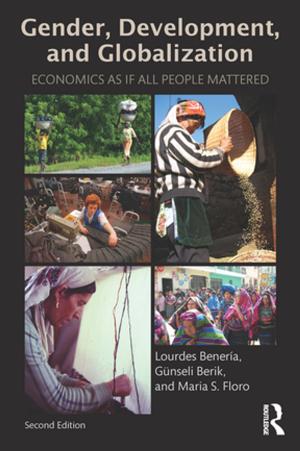Bodies at Risk
An Ethnography of Heart Disease
Nonfiction, Health & Well Being, Medical, Specialties, Internal Medicine, Cardiology, Social & Cultural Studies, Social Science, Sociology| Author: | Elizabeth E. Wheatley | ISBN: | 9781351955126 |
| Publisher: | Taylor and Francis | Publication: | December 5, 2016 |
| Imprint: | Routledge | Language: | English |
| Author: | Elizabeth E. Wheatley |
| ISBN: | 9781351955126 |
| Publisher: | Taylor and Francis |
| Publication: | December 5, 2016 |
| Imprint: | Routledge |
| Language: | English |
In Bodies at Risk, Elizabeth Wheatley provides a fascinating ethnography of heart disease. She looks at what happens to someone after a heart attack and how they get on with 'business as usual' in the wake of a potentially fatal medical crisis. How are daily routines, personal identities, families, friends, and careers affected and rearranged after diagnosis and treatment? This book examines the unfinished business of having and handling heart disease. The research is based on one-on-one and collective interviews, focus groups and participant observation in hospitals, cardiac rehabilitation clinics, and in people's homes. As heart disease is one of the major causes of death in the western world, this book is both timely and important. It is inspired by and contributes to sociological writing on the body, risk, experiences of illness, and medicalization, and will appeal to academics and students in these areas as well as in cultural studies, health-related consumption, health promotion and qualitative health research.
In Bodies at Risk, Elizabeth Wheatley provides a fascinating ethnography of heart disease. She looks at what happens to someone after a heart attack and how they get on with 'business as usual' in the wake of a potentially fatal medical crisis. How are daily routines, personal identities, families, friends, and careers affected and rearranged after diagnosis and treatment? This book examines the unfinished business of having and handling heart disease. The research is based on one-on-one and collective interviews, focus groups and participant observation in hospitals, cardiac rehabilitation clinics, and in people's homes. As heart disease is one of the major causes of death in the western world, this book is both timely and important. It is inspired by and contributes to sociological writing on the body, risk, experiences of illness, and medicalization, and will appeal to academics and students in these areas as well as in cultural studies, health-related consumption, health promotion and qualitative health research.















